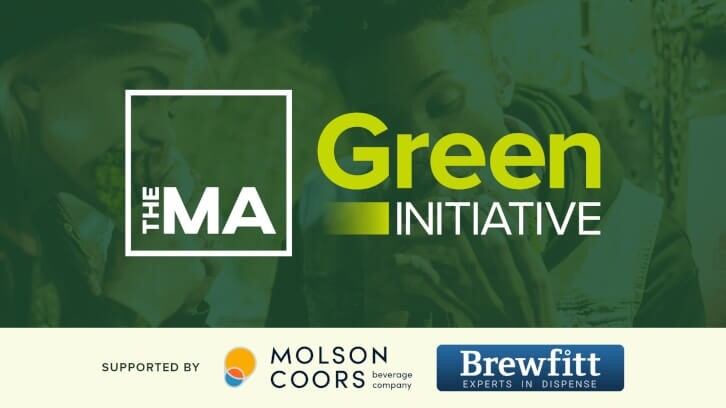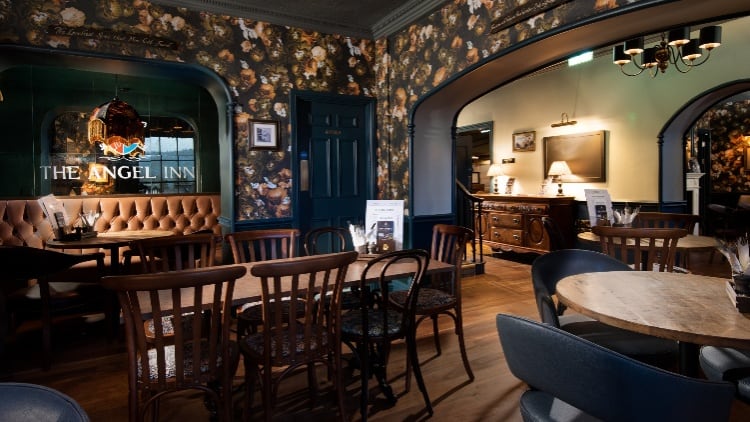- Keen to learn more about sustainability? Sign up to watch our free webinar on the subject here.
Laws around plastic straws were implemented in 2020, which meant pubs were only allowed to give customers plastic straws to those who asked.
While plastic straws are one area of single-use plastics applicable to the pub sector, there are many other parts of businesses that use plastic too.
Pub giant JD Wetherspoon (JDW) has set itself aims around plastic use within the business, with a target of implementing the changes by 2025.
These include 100% of plastic packaging to be reusable, recyclable or compostable as well as 70% of plastic packaging to be effectively recycled or composted.
It is also looking to have 30% average reduced content across plastic packaging and to implement action to eliminate problematic or unnecessary single-use plastic items.
The company stated plastics have a place as they can protect products from damage or contamination as well as increase food shelf life and as they are lightweight, they create lower transport emissions than heavier materials.
However, the group focuses on two areas in its approach to single-use plastics – removing unnecessary single-use plastics that can be avoided and aiming for 100% recyclable, reusable or compostable items.
Plastic straws were removed from the business in December 2017 and replaced with 100% biodegradable and 100% recyclable paper straws and wrappers.
For guests who still want a straw, these are on a self-select basis rather than automatically being handed out.
Pubgoers can also use complimentary water fountains, which are available at all JDW sites while alternatives to current single-use plastic bottles are being reviewed.
When it comes to plastic packaging, the company works with a number of suppliers and with the support of the Waste & Resources Action Programme (WRAP) and the Sustainable Restaurant Association, it aims to reduce and where possible, remove the use of plastic food packaging.
Business audit
The Sustainable Hospitality Alliance has top tips on cutting down plastic waste:
- For businesses with rooms, review the packaging of every bedroom amenity. This could include slippers and robes, shower caps, ear buds and consider a more environmentally friendly alternative.
- As well as offering refillable water containers, review the use of plastic water bottles in bedrooms and meeting spaces, switching to refillable options and reusable cups where you can.
- Engage suppliers in sustainability efforts and ask them to reduce plastic in deliveries.
- Be on the lookout for hidden plastics such as teabags, which often use plastic to keep their shape. Consider alternative teabags and review how they should be disposed of.
- Communicate your sustainability initiatives with teams and customers to help them understand the action you’re taking to address plastic waste and how they can support you in doing so.
Furthermore, plastic containers in its kitchens are now reusable and the use of cling film has ceased.
Moreover, JDW also segregates and recycles plastic milk cartons separated while coloured lids have been replaced with clear recyclable lids.
It is working with its dairy supplier to replace plastic milk cartons with bag-in-box milk, therefore reducing plastic packaging.
Another business that is cutting plastic usage is the Riverside at Aymestrey in Herefordshire, which was awarded Best Sustainable Pub at the 2022 Great British Pub Awards.
Chef-patron of the Andy Link outlined his stance on single-use plastics. He said: “The focus strangely has been fixated on the plastic straw, forgetting so many other aspects of plastic in a hospitality business.
“From bin bags, plastic gloves, cling film to milk bottles, the challenge isn’t solved by only paper straws.”
An audit of the business was undertaken, to look at where was producing the most waste and how this could be tackled.
"We started by analysing every aspect of our waste. For two weeks, at the end of each day, we checked everything that went into our bins,” Link said.
“This revolutionised our opinions on how good we were but helped improve GPs but cutting some portions but also allowed us to analyse our plastic waste and enabled us to start recycling more where possible.”
The analysis highlighted unnecessary packaging from suppliers as an area that could be changed to reduce plastic.
This included switching to a snack provider that uses compostable packets, milk being delivered in large metal churns and returned to the supplier as well as fruit and vegetable deliveries being housed in large, loose item boxes instead of individually plastic bags and boxes.
However, this has been without its issues as Link laid out the obstacles faced by the business when trying to reduce plastic usage and how he has overcome them.
Challenging balance
He said: “The challenges are the enormity of reducing plastic to zero. For one or two people often at the top of each hospitality business, we all have countless lists of daily admin and service tasks so plastic use can’t be a priority.
“We found our best approach was to involve several junior team members to help tackle and research solutions, incentivising results.
“Taking the burden from managers already battling marketing, recessions and the cost-of-living crisis.
“Other challenges facing hospitality businesses including balancing a luxury image with the right sustainable choice.”
This could include products such as toiletries bottles, Link said. While large bottles are the better choice, it could feel lower value.
“It is an ongoing debate here,” Link added. “We currently use a British company known for sustainably sourcing. Although it uses small bottles, they are made from 50% recycled plastic and then recycled again by use.
“These decisions are made to balance a premium hotel room offering with a sustainable one.”
While changing practices within the business isn’t without its challenges, there were also many benefits in doing so, the pub operator revealed.
“One of the pros (beside the environmental cost) is the growing number of hospitality guests are choosing venues for a feel-good factor. They want to see businesses making the right decisions,” Link said.
“PR and marketing initiatives can highlight those sustainability practices and plastic waste reduction programmes.
“This educates your guests but also makes them feel like choosing your business has a positive impact.
“Another pro is the cost impact. With constant cost increases in all areas, our waste has seen a 30% reduction as we have reduced plastic packaging, allowing us to now compost more than 60% of kitchen waste.”
Brewfitt managing director Curtis Paxman said:
“Plastic waste has become a pressing global concern, and businesses, including pubs and venues, are increasingly feeling the impact on their bottom line. The extensive use of single-use plastic bottles for soft drinks poses several challenges, including storage, transport, and waste management costs. With bottle return scheme initiatives being proposed, businesses need to act sooner rather than later.
"One of the major cost implications of plastic waste is storage. Pubs and venues need to allocate considerable space to store bottled beverages in refrigerators to keep them chilled and ready for service. As the volume of plastic bottles accumulates, so does the need for more storage, which can lead to additional expenses on expanding storage facilities or investing in larger refrigeration units.
"Transportation is another significant cost factor. Delivering bottled beverages to pubs and venues requires frequent transportation, resulting in higher fuel consumption and increased carbon emissions. Additionally, transporting empty bottles for recycling or disposal adds to the logistical and environmental burden.
"Furthermore, the disposal of plastic waste comes with its own set of costs. Many establishments struggle to manage the increasing volume of plastic bottles, and the expenses associated with recycling or sending them to landfills can be considerable.
"One solution is to embrace in-house dispensing systems like the Mr Fitz Aqua Spritz.
"Amid these challenges, a solution like the Mr Fitz Aqua Spritz water dispense system from Brewfitt emerges as a game-changer. By bringing soft drink production in-house, this innovative system eliminates the reliance on single-use plastic bottles. Establishments can fulfil their soft drink requirements without the need for large-scale storage of bottled beverages. The system provides a direct-from-tap dispensing mechanism, significantly reducing the costs associated with storage space and refrigeration.
"A typical example includes Brian Whiting from WH Pubs who adopted the Mr Fitz Aqua Spritz system for his sites. He estimated that it saved 10,000 bottles going into landfill. It equated to 900 cases of 75cl bottles being delivered across all of their sites.
"Moreover, adopting this eco-friendly solution reduces transportation costs and related environmental impact. With no need for frequent deliveries of bottled drinks, carbon emissions are diminished, contributing to a greener and more sustainable approach to business operations.
"By eliminating single-use plastic bottles, pubs and venues can reduce their contribution to plastic pollution, aligning with environmentally conscious practices that resonate with consumers and support a positive brand image. By reducing storage, transportation, and waste management costs associated with plastic bottles, businesses can pave the way for a more sustainable and economically efficient future.”





